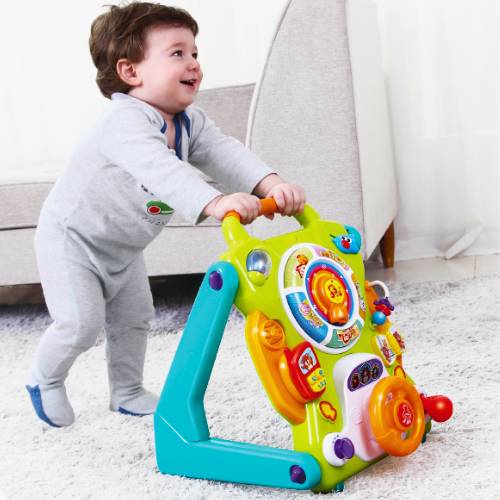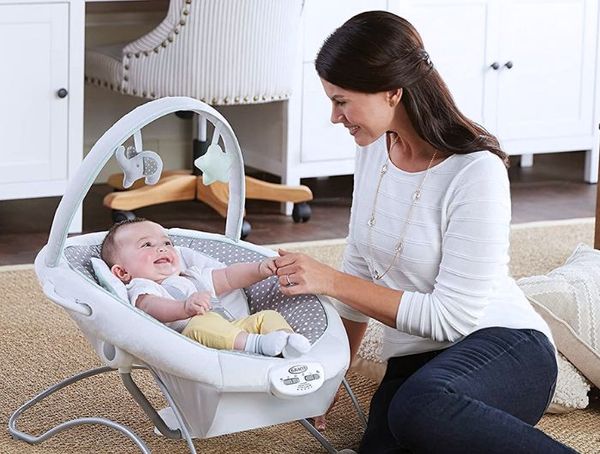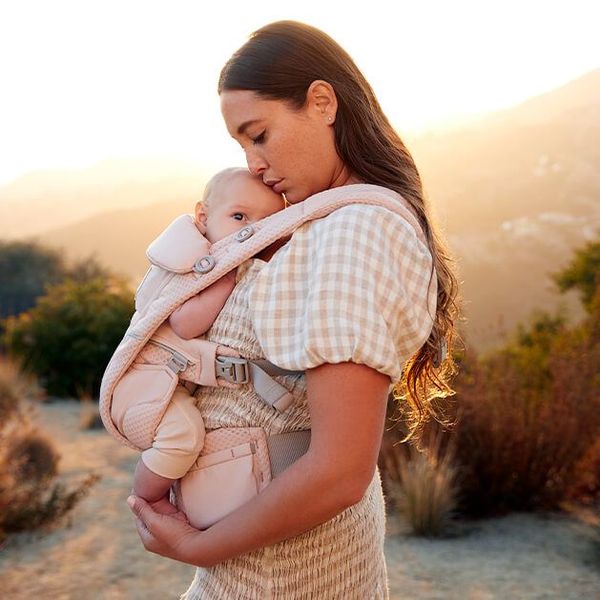If you're anything like me, you've probably spent countless hours researching the best products for your little one. One item that has received a lot of attention lately is the baby push walker.
But are these popular push toys really worth the hype? Let's dive in and explore the baby push walker pros and cons to help you make an informed decision.
Baby Push Walker Pros and Cons
Pro: Encourages Motor Skills Development
One of the biggest advantages of using the best baby push walkers is that it encourages your child's walking skills and motor skills development. As your little one pushes the walker around, they're practicing their balance, coordination, and strength.
This can be especially helpful for babies who are just learning to walk, as it gives them a sense of independence and confidence in their newfound abilities.
For example, when my son first started using his push walker, he was hesitant to take those initial steps. But as he grew more comfortable with the walker, his confidence soared, and he began taking his first wobbly steps without any assistance.

Con: Potential Safety Hazards
While baby push walkers can be a great tool for encouraging motor skills development, they also come with potential safety hazards. Some parents worry that the walkers can tip over or cause their child to fall, leading to bumps and bruises.
To minimize this risk, it's crucial to choose a push walker with a wide base and sturdy construction. Additionally, always supervise your child while they're using the walker and keep them away from stairs or uneven surfaces.
When my son was using his push walker, I made sure to keep a close eye on him and clear any obstacles out of his path. By doing so, I was able to minimize the risk of accidents and ensure his safety.
Pro: Entertaining and Educational Features
Many baby push walkers come with entertaining and educational features, such as piano keys, buttons, lights, and music. These can keep your child engaged while they practice their walking skills, making the experience more enjoyable for both of you.
For instance, my nephew's push walker had a detachable activity panel with various buttons that played songs and taught him about colors and shapes. He loved playing with the different features, and it kept him entertained for hours on end.
Con: Overuse of Push Toys May Delay Walking
As with any baby product, moderation is key. Some experts suggest that overusing push toys may delay walking milestones, as babies learn to rely on the support provided by the toys instead of developing their own balance and muscle strength.
It's essential to strike a balance between using the push walker and giving your child opportunities to practice walking independently.
In our household, we made sure not to rely solely on the push walker for our children's walking development. We also encouraged them to crawl, cruise along furniture, and take steps while holding our hands.
Pro: Provides a Sense of Independence
For many babies, using a push walker gives them a sense of independence that they may not have experienced before. This newfound freedom can be incredibly exciting for your little one and can help them build confidence in their abilities.
I'll never forget the look of pure joy on my son's face when he first started using his push walker. It was clear that he felt empowered and in control, which was a beautiful thing to witness as a parent.
Pro: A Great Alternative to Traditional Baby Walkers
Push walkers can be a great alternative to traditional baby walkers, which have been the subject of safety concerns and even bans in some countries.
Unlike traditional baby walkers that fully support your child's weight as they move around, push walkers require your child to engage their muscles and work on their balance. This can help your baby develop their walking skills more naturally and safely.
When my friend switched from a traditional baby walker to a push toy for her daughter, she noticed a significant improvement in her walking skills. She became more confident on her feet and was able to transition to independent walking more quickly.
How to Choose the Best Baby Push Walker for Your Baby
Now that we've discussed the pros and cons of baby push walkers, you may be wondering how to choose the best one for your little one. Here are some tips to help you make the right choice:
Consider Safety Features
As mentioned earlier, safety is a top concern when it comes to baby push walkers. Make sure to choose a walker with a wide base, sturdy construction, and non-slip wheels to minimize the risk of accidents.
Some walkers also come with adjustable speed settings or brakes, allowing you to control how fast your child can walk with the toy.
Look for Engaging and Educational Elements
To keep your baby engaged and encourage them to learn, look for a push walker that includes interactive features such as lights, sounds, and activities. These elements can help your baby learn about colors, shapes, numbers, and more while they practice walking.
Choose a Walker with an Adjustable Height
Babies grow quickly, so it's essential to choose a walker that can grow with them. Some babies start using a push walker as early as 9 months old. Look for a push walker with an adjustable height, which will allow your child to continue using it as they get taller and more confident in their walking skills.
This feature ensures that your investment will last longer and continue to support your child's development.
Finding the Right Balance
As with most baby products, the key to reaping the benefits of a baby push walker is finding the right balance. While these walkers can provide valuable assistance in developing motor skills and confidence, it's important not to rely on them exclusively.
Make sure your child also has plenty of opportunities to practice walking independently and under your watchful eye.
Thank you for reading Mother Bear Reviews, your favorite parenting blog!








